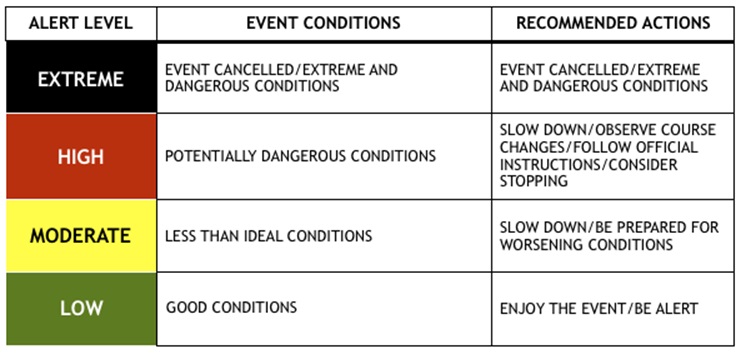The Georgina Spring Fling, Georgina Marathon and Half Marathon and the Oakville 21.1 contracts Odyssey Medical to be on site dedicated to ensuring the safety of our participants, volunteers, spectators and staff on race day from the start line to the finish line. Their medical teams include prehospital providers (first responders, paramedics, lifeguards) and/or healthcare professionals more traditionally found in hospital settings (nurses, physicians). Their staff will be at the finish line and along the course with a gator vehicle. There is a large medical tent at the finish line in which any participant in need will be assessed and treated. York Region paramedics and/or Halton Region Paramedics are nearby and ready to respond to calls.
The Georgina Spring Fling on May 5, 2024 will have a team of medics from Odyssey Medical on site and will have paramedics on site providing dedicated care and response to our runners in the race.
Running a marathon is a true test of endurance. It requires proper training and conditioning and a healthy body. Every runner needs to listen to their body and should have clearance by their medical doctor before taking part in a training program and before taking park in a race. If you have an injury, or you are experiencing any symptoms that are not normal in the days and weeks leading up to the race, we recommend that you visit your medical doctor right away and consider not running the Georgina Marathon and Half Marathon and related events, the Georgina Spring Fling and related events or the Oakville 21.1 and related events.
Do not make any major changes to your training or diet in the days leading up to your running race. You need to maintain proper nutrition and proper hydration in order to have a successful day. Dress appropriately for the weather. Modify your efforts according to the weather so you remain safe if it is hot. Be sure to hydrate based on heat and effort, with an electrolyte drink that you have practiced with. Gatorade electrolyte drink and water will be available at every aid station along the course. You will also need to bring your own nutrition in the form of gels, sport bars or equivalent, whatever you have been practicing with throughout your training program, to stay healthy and perform at your best as you do your event.
Be familiar with the course and the location of the aid stations along the course. If you experience any feelings that are abnormal and/or you question as you are running, seek attention from our medical team, volunteers or a race official along the course. Do not take the risk of running through these feelings. If you are unable to finish your event, the gator with the medical team on board and/or race staff along the route are available on the course to transport you to the finish area.
The Event Alert System (EAS) will also be present and active along the course. This is a color-coded method of quickly communicating to participants the potential for adverse weather conditions that can affect the race event. Athletes, volunteers, and race staff will also be emailed information on this system as we approach race day and they should share it with family and friends who are attending the race. These adverse conditions are most usually related to heat stress. However, the system could also be used to warn of other potentially dangerous situations, such as cold, storms, tornadoes, or even non-weather situations like auto accidents or fires on or near the course. The safety of our participants, volunteers, and spectators is paramount. Hard decisions sometimes must be made to ensure the safety of ALL.
